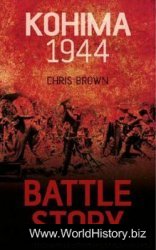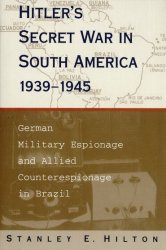The Supreme Court decision in Escobedo v. Illinois, a precursor to Miranda v. Arizona, marked a significant step in safeguarding the rights of suspects in police investigations. By stretching the constitutional requirement of right to counsel, Escobedo restricted the police from interrogating an individual without an attorney present.
On the night of January 19, 1960, Daniel Escobedo was arrested without a warrant and interrogated by police about the fatal shooting of his brother-in-law. Escobedo made no statements to the police and was released the following afternoon on a writ of habeas corpus, drafted by his retained attorney, Warren Wolfson, saying he was being held without charge.
Eleven days later, Benedict DiGerlando, an acquaintance of Escobedo now in police custody, told the police that Escobedo had fired the fatal shots in the murder of his brother-in-law. DiGerlando was later indicted along with Escobedo. The police again arrested Escobedo and brought him to police headquarters to be interrogated. On the way to the police station, Escobedo was told that DiGerlando had named him as the shooter. The police encouraged him to confess to the crime, but Escobedo declined and asked to speak to his attorney.
Shortly after Escobedo reached police headquarters, Wolfson, Escobedo’s attorney, arrived and requested to speak to him. The lawyer was denied access to his client repeatedly for the next three to four hours. Officers in the Homicide Bureau told him on several occasions that he could not speak to Escobedo because the police had not finished questioning him. Wolfson remained at the station from 9:00 P. M. that evening until 1:00 A. M. the following morning; despite quoting passages from the Criminal Code to on-duty officers, Wolfson was never allowed to see his client.
Meanwhile, Escobedo continually requested, unsuccessfully, to speak to his lawyer. He later testified that police told him his lawyer “didn’t want to see him.” During the interrogation, the police encouraged Escobedo, who had yet to reveal any knowledge of the crime, to pin the shooting on DiGerlando. When police arranged a confrontation between Escobedo and DiGerlando, Escobedo denied firing the fatal shots and claimed that DiGerlando had done so, thereby implicating himself in the plot. Escobedo’s statements were then used to convict him of murder. His conviction was affirmed by the Supreme Court of Illinois.
Attorneys for Escobedo decided to appeal his case to the federal level. The U. S. Supreme Court agreed to hear the case on appeal, and it was immediately recognized by legal scholars that the case carried momentous judicial import. The central question before the Court was whether or not the right to counsel extended to the moment of arrest.
Bernard Weisberg, a vocal critic of police interrogatory powers, argued the Escobedo case for the American Civil
Liberties Union. In his brief, Weisberg examined current police interrogation manuals and highlighted what he considered unfair and inherently coercive police tactics which were considered lawful at the time. Weisberg harshly criticized the “virtually unlimited discretionary power” of police interrogators, which he claimed eroded the basic fairness of a criminal proceeding.
In arguing for the state of Illinois, Northwestern University law professor (and future Illinois governor) James Thompson warned the Court that any decision to extend the right to counsel would eliminate confessions as a tool for the police. Thompson predicted that such a decision would cripple law enforcement officers by requiring them to inform a suspect of his right to counsel.
In a 5-4 decision, the Supreme Court reversed Escobedo’s conviction. Justice Arthur Goldberg wrote the majority opinion, holding that because Escobedo was being detained as a suspect, by refusing to honor his request to consult an attorney, the police had denied him his constitutional right to counsel as provided by the Sixth and Fourteenth Amendments.
Legal scholars criticized the Escobedo opinion, claiming that at times it appeared to constitute a broad attack on police interrogatory powers and the use of confessions, while the language at other points tended to be confining and specific to the facts of the Escobedo case.
Justices John Harlan, Potter Stewart, and Byron White each wrote dissenting opinions, claiming that the majority’s decision would unjustifiably shackle legitimate police investigative methods, and that the right to counsel should only attach at the initiation of formal proceedings against a defendant.
The Escobedo decision was subject to widespread controversy over the next two years. Narrow interpretations of the Court’s decision only recognized a suspect’s right to counsel when he or she chose to exercise that right. Broader readings, however, including the interpretation of James Thompson, asserted that Escobedo required that a suspect be informed of the right to counsel.
Contention over the scope and meaning of Escobedo was erased in 1966 with the landmark decision in Miranda v. Arizona. The Supreme Court bolstered Escobedo by requiring in the Miranda decision that police inform a suspect of his or her right to remain silent and to have legal counsel present. These requirements were to be carried out in what would become the famous “Miranda warnings.”
Further reading: Walter V. Schaefer, The Suspect and Society: Criminal Procedure and Converging Constitutional Doctrines (Evanston, Ill.: Northwestern University Press, 1967).
—Guy R. Temple




 World History
World History









